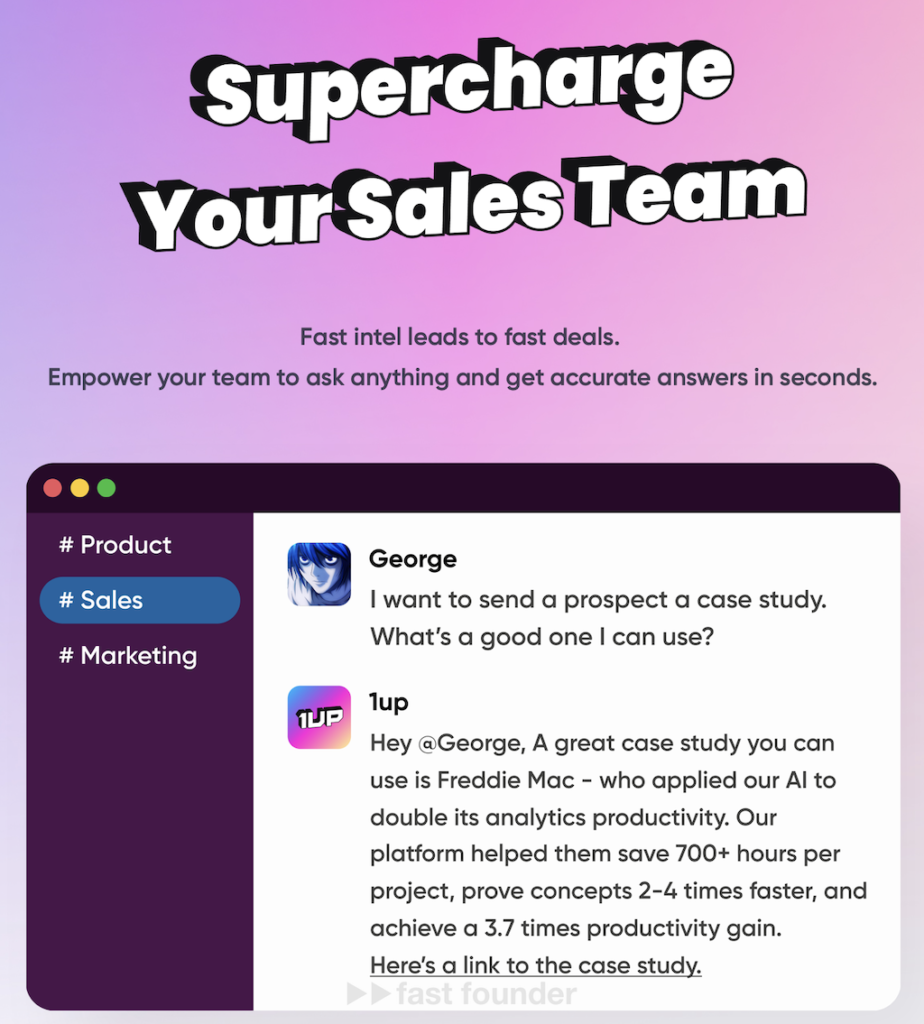The traditional model of sales is dead. In the past, companies could afford to hire full-time salespeople who would learn the ins and outs of their products and services over time. However, the average tenure of a salesperson is now just 6-9 months. This means that companies need to find a new way to find and train salespeople.
Project Essence

Glencoco has created a “modern technological” marketplace where companies can find freelance salespeople to sell their products.

Glencoco claims that their marketplace “solves a fundamental problem” in sales, which is that everyone needs to sell, but it’s become too difficult to find salespeople. The startup compares its marketplace to Uber (on-demand services), LinkedIn (professional social network), and Alibaba (marketplace).

The marketplace’s offer to salespeople is “work on your own schedule, earn more commissions, and stop worrying about getting fired.”

Salespeople choose the companies and campaigns they want to join on the marketplace. However, they can only start working after the company approves their participation in a specific selling campaign.
Salespeople call cold leads, and they earn money for every online meeting they set up with a company’s in-house salesperson. The marketplace takes a 30% commission on this money.
Every successful call and scheduled meeting earns salespeople not only money, but also badges and achievements that boost their reputation on the marketplace. This reputation increases their chances of being connected to the next selling campaign.

The company provides the contacts for the calls. However, salespeople can also upload their own contact lists to the platform and offer them to companies.
The salesperson’s personal account on the marketplace includes a CRM that provides salespeople with lists of contacts to call. There is also a chat where salespeople can contact company representatives and ask them additional questions about the product being sold or about overcoming customer objections.

Before starting the calls, salespeople go through a special training from the company. In this training, they learn about the product, the customer profile for that product, and effective negotiation scripts, including recordings of real successful conversations.
Each week, the company holds an online meeting on the platform with all of the salespeople participating in their campaign to encourage them and share new tips on how to sell their product more effectively.

The marketplace’s offer to companies is to “remove the fixed costs of maintaining in-house callers and replace them with a fixed cost for setting up an online meeting.”
The company determines the price for a scheduled meeting based on the cost of the product being sold, demand, seasonality, and other factors.

Companies can offer particularly outstanding salespeople a full-time job. In this way, the marketplace becomes another recruiting channel for them, where they can evaluate candidates in the process of real work.
Companies can pause or stop sales of their product on the marketplace at any time if they see that the results are not meeting their expectations.

The platform records all conversations between salespeople and customers. These recordings are available to companies for analysis along with the overall statistics of the current campaign and all of the salespeople participating in it. This gives companies the ability to always keep their finger on the pulse of sales, as well as analyze customer objections and the quality of work of individual salespeople.

I mentioned above that salespeople have access to special trainings before starting sales of each specific product.
The beauty of this is that the platform has a special AI assistant that helps companies quickly create these trainings based on their own materials about the product and methods for successfully selling it. The AI assistant can even create tests to test salespeople’s knowledge during the training, which gives companies the ability to weed out unsuccessful sales candidates.

Companies do not incur any additional costs to start their sales through the marketplace.
However, the marketplace can provide companies with the ability to enrich the list of contacts uploaded for calling with additional information and provide special email addresses for salespeople connected through the platform. This service costs companies $500 per month of sales.
The startup was founded last year, and their marketplace started operating this year. The startup’s founders stated that they plan to reach the expected annual revenue of $3 million within the next 6 months.
Against the backdrop of expected growth and current indicators confirming this, Glencoco raised their first investment of $3 million.
What’s interesting?

A similar marketplace for salespeople, along with a special platform for conducting cloud sales, was created by the startup SellX, about which I wrote in the spring of last year. It raised $4 million in its first round of funding.
Why are these platforms suddenly relevant now? The problem is that staff turnover continues to increase in all companies and in all positions. Salespeople are no exception. Even the opposite
Among salespeople, turnover is even higher than in other positions. The startup claims that the average tenure of a salesperson sitting on cold calls is 6-9 months. Thus, within a year, the sales team in a company is almost completely renewed.
And this, in general, turns into a complete fiction the desire and hopes of companies to have “full-time” salespeople who eventually gain experience in selling a particular product. After all, such experience, as a rule, accumulates only after 2-3 years of sales.
From this, an important question immediately arises. Why then do companies need to waste time, effort and money on hiring, paying permanent salaries and retaining supposedly permanent employees – if they come and go like ordinary freelancers? Then it is better to start working with real freelancers without all these dances with tambourines – having a wide selection of candidates, attracting only the necessary number of them each time and paying them only for the result.
And this leads to another important consequence. If companies stop relying on the accumulated experience of salespeople in selling their products, then they suddenly need platforms where they can quickly train new salespeople and quickly throw them into battle, trying to achieve at least acceptable results.
And such platforms are really appearing – here is just a couple of startups from the most recent ones

.
Siro, about which I wrote in October, created a platform for coaching salespeople and raised $18 million in funding in its first round.

1up, about which I wrote in November, created an AI assistant that can quickly answer questions from inexperienced salespeople related to different aspects of product sales. This startup raised $2.5 million in funding in its first round.
Based on the examples of the startups mentioned today, it is clear that the movement towards harsh reality is still taking place gradually from two different sides:
Such startups as Siro and 1up focus on advanced ways of training salespeople, without paying attention to where companies can get these salespeople from. Today’s Glencoco is creating a marketplace for salespeople, offering (for now?) only basic methods of their training, such as quickly creating trainings using an AI machine.
Where to Run
The true goal is clearly somewhere in the middle – in the form of platforms for attracting temporary salespeople, on which there would be powerful tools for training and supporting salespeople who do not have much sales experience in general and experience in selling a particular product in particular. That is, something like Glencoco plus Siro plus 1up.
The creation of such platforms is the direction of possible movement. Its relevance is explained by the fact that all companies sooner or later realize that they will have to sell with the hands and languages of insufficiently experienced freelancers. And for this, they will need special platforms on which they can simultaneously find, train, control, and support these freelancers.
It is possible that one day the role of live salespeople will be able to be performed by AI. But, strangely enough, this does not negate the need to create such platforms. After all, the conditional Uber was created as a marketplace for live taxi drivers, and it will not die even after the advent of self-driving taxis. Even on the contrary – its profitability should only increase due to this.

And some startups are already working on creating AI salespeople and other categories of digital employees. Among them are 11x, which raised $2 million in funding, and Artisan AI, which raised $2.3 million.
So, platforms for sales within the framework of the trend outlined today need to be created taking into account that at some point, AI salespeople will come to replace live salespeople – but they will still have to be trained to sell specific products, and their work will have to be constantly monitored and analyzed.

Given that only in the United States, 5.7 million people work as salespeople, this market is huge. As a consequence, the movement towards bringing this market in line with the reality of hiring and the level of technological development is very promising.
About the company
Glencoco
Website: glencoco.com
Last round: $3M, 16.11.2023
Total funding: $3M, rounds: 1
